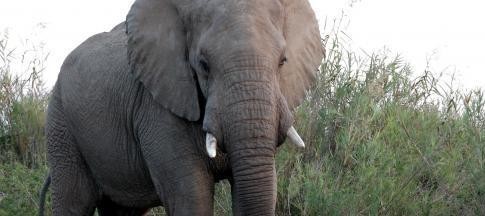South Sudan plans to establish a joint wildlife management base with neighboring Democratic Republic of Congo (DRC) and 15 other African countries, an official disclosed.
In an interview with Radio Tamazuj on Wednesday, Brigadier Joseph Taban, the director of Lantoto National Game Park said the move is aimed at preserving valuable animal species such as elephants, giraffes and hippopotamuses from becoming extinct.
He said South Sudan, DRC, Cameroon and South Africa have been involved in several trans-border wildlife conservation meetings to preserve animals for the socio-economic growth of member states.
Taban, who recently participated in a wildlife conservation meeting that was held in Cameroon, also disclosed that South Sudan is set to host another round of joint meeting in the capital, Juba this month.
Taban said the forthcoming meeting is aimed at signing a Memorandum of Understanding (MoU) with the member countries.
“The joint African game park body has plans to set an administration unit at Garamba for the conservation of disappearing animals and we have agreed as member countries to ensure that we preserve the big five animals such as giraffes and elephants so that we conduct joint protection at the border lines,” he explained.
He added, “We shall have a final technical meeting in Juba this month and reach a Memorandum of Understanding before the start of work”.
According to the South Sudanese official, once the joint management base has been established at Garamba-Lantoto national Game Park, it will generate non-oil revenues to government and improve infrastructural development within local communities.
He urged the locals to preserve animals in game parks and villages.
“Wild animals are very important, we need to protect them. I am calling on the public to know that these animals will generate revenue and also attract tourists to the country. We really need to protect our wild animals for future benefits,” he said.
According to a report by the World Travel and Tourism Council, the tourism industry makes up a small share of the Gross Domestic Product (GDP) of South Sudan, only 1.8% as of 2013.




